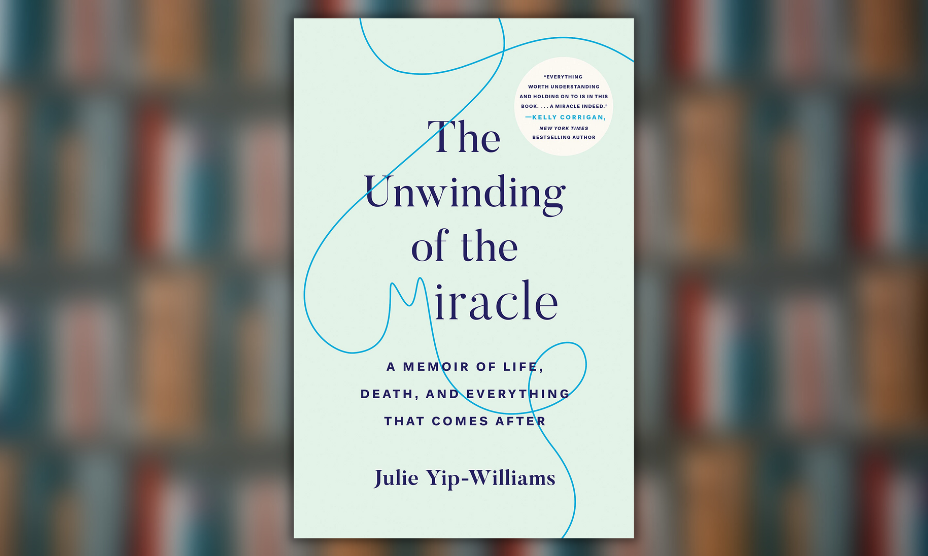It is that time of year: the yartzheit of a close friend. I will not go to shul to say Kaddish, but when she died nine years ago, I wanted to. Is it appropriate to want that? When her cancer returned, a fact she oddly whispered to me as we were about to daven Mussaf, the two of us wondered aloud why we do not sit shiva for friends. Our friends are, for the most part, the family we choose, but after we lose them, someone else sits in the low chairs. We are there to comfort those others, even as we are desperate for comfort ourselves.
I use the term “lost” intentionally. The death of a friend is a mighty blow. A stab in the heart. Just as Kubler-Ross describes, it breeds denial and anger. There is, finally, an acceptance of death — only because it is an affirmable reality — but without ever a sense of its acceptability.
Some people might argue that the word “lost” is a terrible euphemism for the death of a friend–or anyone. It’s ambiguous rather than stark. It’s not explicit or sufficiently descriptive. One can, such individuals contend, lose a friend who is still alive because of irreconcilable differences. Sometimes we lose friends through attrition. We lack the bandwidth for all the people who should matter but cannot. The space for love has been taken by spouses, children, aging parents, closer friends and stray relatives. Even a heart of many chambers has its limits. So “lost,” in this thread of thought, is not specific enough. It’s too generic to resonate.
But the word “lost,” for me, perfectly describes the fog that settles in when you thought you’d have a friend for the duration of your life and then, suddenly, you don’t. How I wish I could call her and discuss our kids or a book I just read. All she wanted was to have a grandchild, and her first was born during her shiva. It felt and still feels tragic. I thought I’d always be able to pick up the phone and connect, unload, unwind or get good advice, and suddenly, repeatedly, I cannot. If being lost means the inability to find one’s way or to miss something that cannot be recovered, then the death of a friend makes us disoriented and adrift. There is a black hole where love once existed. I long to connect and, instead, find myself untethered. I saved my own grief to process with the one person who would truly understand it only to realize I had to hold it inside because that person is no longer alive.
In A Grief Observed, C. S. Lewis wrote that he thought he could make a map of his sorrow. It could not, however, be done, because grief is not a state. It is a process. “For in grief, nothing ‘stays put.’ One keeps on emerging from a phase, but it always recurs. Round and round. Everything repeats.” It seems that this circular motion will continue without end. “How often – will it be for always? – how often will the vast emptiness astonish me like a complete novelty and make me say, ‘I never realized my loss til this moment’?” This loss also raises the specter of every other expectation in life that will also not get fulfilled. Sadly, inexcusably, living with that death cracks us open with a fissure we cannot close.
I learned that, ironically, when you lose a friend, you know with clarity that you will never lose a friendship.
But I found small comfort when I came across a lengthy and unusual Mishna that describes what happened upon the death of particular scholars:
From the time when Rabbi Meir died, those who relate parables ceased; from the time when ben Azzai died, the diligent ceased; from the time when ben Zoma died, the exegetes ceased; from the time when Rabbi Yehoshua died, goodness ceased from the world; from the time when Rabban Shimon ben Gamaliel died, locusts come and troubles multiplied; from the time when Rabbi Elazar ben Azarya died, the sages ceased to be wealthy; from the time when Rabbi Akiva died, the honor of the Torah ceased; from the time when Rabbi Ḥanina ben Dosa died, the men of wondrous action ceased; from the time when Rabbi Yosei the Small died, the pious were no more. And why was he called the Small? Because he was the smallest of the pious, meaning he was one of the least important of the pious men. From the time when Rabban Yoḥanan ben Zakkai died, the glory of wisdom ceased; from the time when Rabban Gamliel the Elder died, the honor of the Torah ceased, and purity and asceticism died (BT Sotah 9:15).
The overstatement here is meant to provoke. Could the good or the pious ever truly leave the world? Can wonder ever vanish or the honor of the Torah ever disappear? I think the rabbis were accomplishing something very specific with all of this exaggeration.
Anyone who has been personally and profoundly touched by the virtue, intelligence, or otherworldliness of someone special who has died, experiences the heart-stopping sensation that these qualities will cease to exist because they were so memorably embodied by the dead. And when the world shrinks in absence of these qualities, those of us who remain will be hit by this loss again and again, like a tower of wooden blocks where the foundational level has been removed, and the structure is destabilized.
Something died when this friend died, some inexplicable unnamable quality of life. The rabbis were on to something. I mark this year’s yartzheit knowing that although I have lost this precious soul in my life, I will never lose her in my heart. I cannot believe she is no longer on my speed dial and that I have not called her 10 minutes before Shabbos in almost 10 years. I’m still a little lost.
But I learned that, ironically, when you lose a friend, you know with clarity that you will never lose a friendship.
Dr. Erica Brown is the Vice Provost for Values and Leadership at Yeshiva University and the inaugural director of the Rabbi Lord Jonathan Sacks-Herenstein Center for Values and Leadership. She is the author of 12 books and currently writing a commentary on Ecclesiastes to be out in 2023.





































